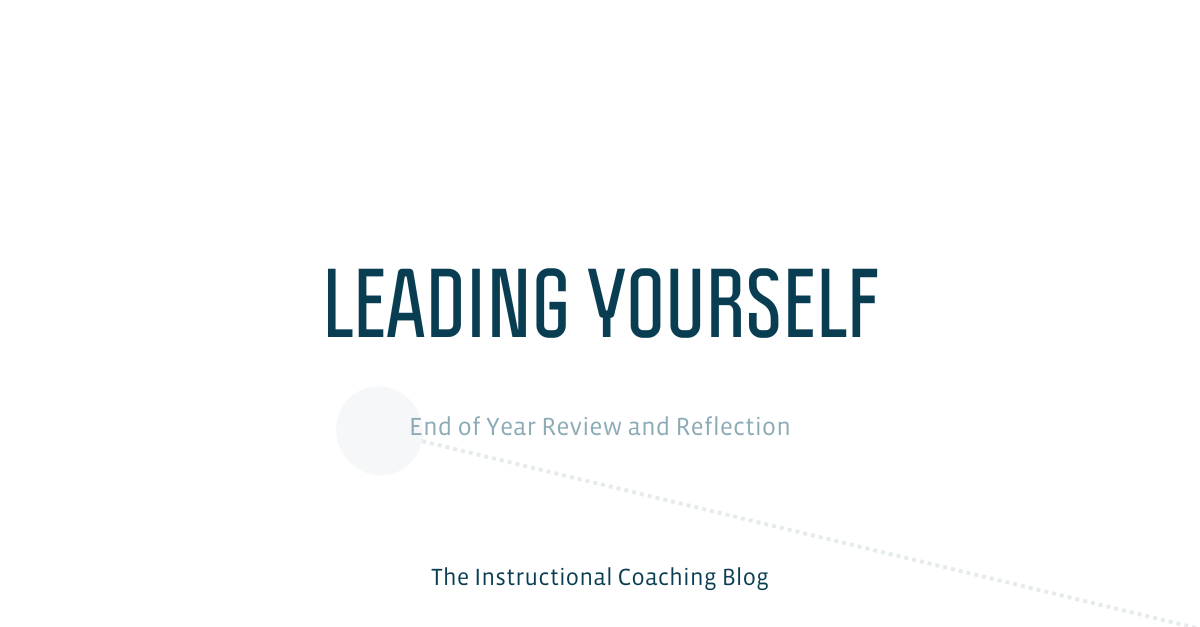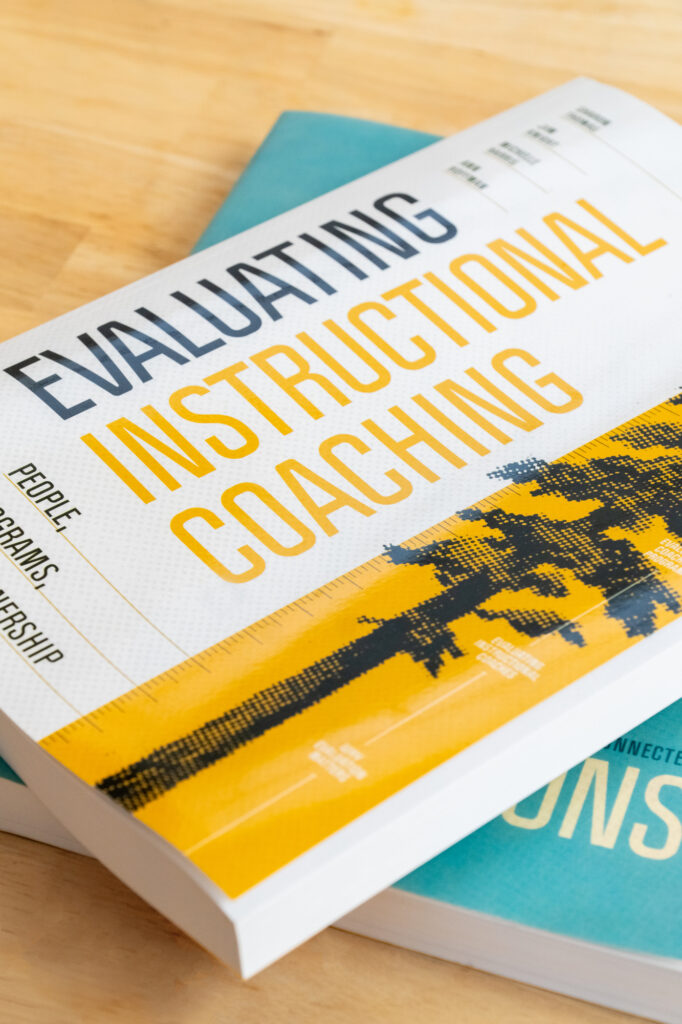Coaches as leaders is about “making sure learning happens”. To make learning happen, you as the instructional coach must lead yourself as you lead others. To lead yourself successfully, you must know the purpose of your role. When your instructional coaching purpose is clear, you can prioritize tasks and action steps to move the coaching program forward.
As we get closer to the end of another school year, you are likely in the process of making plans for next school year. Before you get deep into planning, make sure you take time to reflect and review what has happened with this school year’s coaching goals and initiatives.
In his book The Definitive Guide to Instructional Coaching, Jim explains how part of “leading yourself” is being aware of the external and internal dimensions of your time. Internal dimensions “refer to factors that coaches can control”. Within this internal control is “review”. Jim states that “before you plan your day, you may want to look back on the previous day to see if you need to change anything”.
For this post, we will rephrase Jim’s words to “before you plan next year, you may want to look back on this school year to see if you need to change anything.”
As you look back on this school year, consider using reflection prompts such as these “after action review” (AAR) questions:
- What was supposed to happen?
- What really happened?
- What accounts for the difference?
- What will I do differently?
In his book, How to Get Along with (Almost) Anyone, Michael Bungay Stanier shares five questions of, what he calls, the keystone conversation. While these questions are intended to be used in dialogue with a partner, supervisor, or coworker, they too can facilitate reflection and review of this school year:
- The Amplify Question: What is your best?
- The Steady Question: What are your practices andpreferences?
- The Good Date Question: What can you learn from successfulpast relationships?
- The Bad Date Question: What can you learn from frustratingrelationships?
- The Repair Question: How will you fix it when things gowrong?
Taking time to review and reflect with these questions can be an opportunity to identify what was effective as well as areas that need to be refined and supported.



























